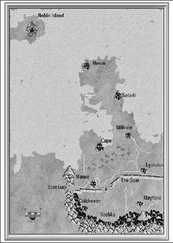Amos Oz - Elsewhere, Perhaps
Здесь есть возможность читать онлайн «Amos Oz - Elsewhere, Perhaps» весь текст электронной книги совершенно бесплатно (целиком полную версию без сокращений). В некоторых случаях можно слушать аудио, скачать через торрент в формате fb2 и присутствует краткое содержание. Год выпуска: 1985, Издательство: Mariner Books, Жанр: Современная проза, на английском языке. Описание произведения, (предисловие) а так же отзывы посетителей доступны на портале библиотеки ЛибКат.
- Название:Elsewhere, Perhaps
- Автор:
- Издательство:Mariner Books
- Жанр:
- Год:1985
- ISBN:нет данных
- Рейтинг книги:4 / 5. Голосов: 1
-
Избранное:Добавить в избранное
- Отзывы:
-
Ваша оценка:
- 80
- 1
- 2
- 3
- 4
- 5
Elsewhere, Perhaps: краткое содержание, описание и аннотация
Предлагаем к чтению аннотацию, описание, краткое содержание или предисловие (зависит от того, что написал сам автор книги «Elsewhere, Perhaps»). Если вы не нашли необходимую информацию о книге — напишите в комментариях, мы постараемся отыскать её.
Elsewhere, Perhaps — читать онлайн бесплатно полную книгу (весь текст) целиком
Ниже представлен текст книги, разбитый по страницам. Система сохранения места последней прочитанной страницы, позволяет с удобством читать онлайн бесплатно книгу «Elsewhere, Perhaps», без необходимости каждый раз заново искать на чём Вы остановились. Поставьте закладку, и сможете в любой момент перейти на страницу, на которой закончили чтение.
Интервал:
Закладка:
Now let us look toward the fields of crops all round the kibbutz. A heart-warming sight. Fields of bright green fodder, dark orchards, cornfields echoing the sunshine with a blaze of gold, banana plantations with a tropical air of overpowering vitality, vineyards spreading right up to the rocky heights, the vines not sprawling untidily but neatly arranged on trellises. The vineyard, delightfully, makes a slight inroad into the mountain terrain, which is indicated by the gentle curve of the ends of the rows. We shall refrain from reciting yet another of the poems of Reuven Harish, but we cannot conceal our modest pride at the marked contrast between the cultivated plain and the grim heights, between the blooming valley and the menacing mountain range, between the confident optimism below and the unruly glowering presence above.
Take your last photographs, please. Time is short. Now let us get back in the car and complete the final stretch of the journey.
2. A REMARKABLE MAN
Logically, Reuven Harish should have bitterly hated the tourists. The man who wrecked his life was a tourist. It had happened a few years previously. Noga was twelve and Gai was about three when Eva left her husband and children and married a tourist, a relative, her cousin Isaac Hamburger, who had been spending three weeks with us that summer. It was a sordid affair. Ugly instincts came to the surface to torment and destroy. Now Eva lives with her new husband in Munich. They run a night club there, in partnership with another fine Jew, a sharp, shrewd bachelor by the name of Zechariah Berger, Zechariah Siegfried Berger. We must claim the reader's indulgence if we find difficulty in describing the event and its heroes without giving vent to our own moral indignation.
Logically, Reuven Harish should have hated the tourists. Hated them bitterly. Their very existence reminds him of his disaster. To our amazement, Reuven has seen fit to take on himself the regular task of showing the tourists round our kibbutz. Two or three times a week he gives up some of his free time for this purpose. We have become used to the sight of his tall, lean form leading a motley procession of tourists around the farm. He expounds the rudiments of collectivist ideology to them in his friendly, intimate voice. He is not tempted into facile reasoning, nor does he shy away from theoretical principles. He never tries to satisfy the exotic expectations of his heroes. His resolute straightforwardness cannot tolerate compromise or circumlocution. In his youth he was fired with blazing enthusiasm, which in later years evolved into a different kind of enthusiasm, a sober enthusiasm without arrogance but with a strict self-discipline of unrivaled purity. He is a man who has known pain and is bent on reforming the world, but who knows that the twists of life cannot be reduced to simple formulas.
It is a fine thing for a man who has known suffering to aspire to reform society and to strive to remove suffering from the world. There are some sufferers who hate the world. They spend their lives cursing it destructively. We, in accordance with our philosophy of life, are against hatred and against curses. Only some kind of mental perversity can make a man choose darkness in preference to light. And it is as clear as daylight that mental perversity is the opposite of right-mindedness, just as day is the opposite of night.
At first we were surprised by Reuven Harish's dedication to the task of receiving the tourists. There was something strange and illogical about it. Gossiping tongues tried to explain the instincts at work here. It was said, for example, that people sometimes want to remind themselves of pain, to turn the knife in the wound. It was said that there are different ways of hiding a feeling of guilt. There was even an outrageous suggestion, which we reject absolutely, that he wanted to seduce a young girl tourist to wipe out his humiliation with a fitting revenge. And there were other explanations, too.
Whoever objects to such gossip betrays his own lack of understanding of our collective life. Gossip plays an important and respected role here and contributes in its way to reforming our society. In support of this claim, let us recall a statement we have heard made by Reuven Harish himself: the secret lies in self-purification. The secret lies in judging one another day and night, pitilessly and dispassionately. Everyone here judges, everyone is judged, and no weakness can succeed for long in escaping judgment. There are no secret corners. You are being judged every minute of your life. That is why each and every one of us is forced to wage war against his nature. To purify himself. We polish each other as a river polishes its pebbles. Our nature notwithstanding. What is nature, but blind, selfish instinct, deprived of free choice? And free choice, according to Reuven Harish, is what distinguishes men from animals.
Reuven speaks of judging. Gossip is simply the other name for judging. By means of gossip we overcome our natural instincts and gradually become better men. Gossip plays a powerful part in our lives, because our lives are exposed like a sun-drenched courtyard. There is a widow in the kibbutz, Fruma Rominov by name, who is steeped in gossip. Her judgments are severe, but not cold-blooded. Those of us who fear her caustic tongue must overcome their weaknesses. And we, too, judge the widow. We accuse her of excessive bitterness and we cast doubts on her commitment to the ideals of the kibbutz. So Fruma Rominov in turn is compelled to overcome her nature and to refrain from excessively malicious remarks. Here, then, is a concrete illustration of the image of the pebbles in the river. Gossip is normally thought of as an undesirable activity, but with us even gossip is made to play a part in the reform of the world.
After Eva's marriage to her cousin Isaac Hamburger, she settled in Munich with her new husband and assisted him in his entertainment business. The news that reached us by roundabout ways announced the appearance in her of unsuspected talents. Our reliable source of information, which will be revealed shortly, added that her sensitive taste brought an unusual character to Berger's and Hamburger's cabaret. Customers flooded to it for a rare entertainment which captured the imagination. Decency constrains us not to describe it in detail.
Eva had always been energetic and practical, and she also had a brilliant imagination that was forever seeking an outlet in some form of artistic expression. Such qualities as these in a faithful wife are a stimulant for the intelligent husband. And Eva Hamburger had been blessed, even as an adolescent, with a graceful, deerlike beauty.
Long ago, Eva used to copy out Reuven's early poems in her slanting handwriting. In a special album she used to collect the cuttings from the kibbutz-movement papers in which they appeared. The album itself she decorated with delicate pencil drawings. A warm grace infused everything she did. Despite her unfaithfulness, we cannot forget the devotion and good taste with which she used to lead the meetings of the classical music circle of our kibbutz. Until a demon entered into her.
Reuven Harish bore the blow with remarkable self-control. We had never suspected that there lurked in him the determined resignation which he displayed in the moment of crisis. He did not neglect for an instant his work as a teacher in our primary school. His pent-up despair was free from any hint of animosity. His grief endowed him with a certain radiant sensitivity. Here in the kibbutz he was ringed with a halo of general sympathy.
Toward his motherless children he displayed a discreetly moderated devotion. See him walking in the evening along the kibbutz paths, wearing a blue shirt and a pair of threadbare khaki trousers, with Noga on one side of him and Gai on the other, stooping to catch every one of his children's words, even their most idle chatter. The girl's eyes are like her father's, large and bright green, while the boy's are like his mother's, dark and warm. Both children are endowed with a rich inner life. Reuven is careful to remain close to them, without trampling on their inner thoughts and feelings. He exercises a father's authority and a mother's attentive love. Moved by his love for his children, Reuven began writing children's poems. These were not the verses of a childish adult but those of a grown-up child. There is no heavy mockery in them, but subtle humor and a pleasant musical quality. The publishing house of the kibbutz movement had the splendid idea of producing a collection of his children's poems in a beautiful edition. The book was illustrated with drawings made by Eva, long ago, before the flood. These drawings were not originally intended to accompany children's poems, and they did not correspond to the text. But there was a kind of harmony between the drawings and the verses. This is a puzzle to which there is no simple solution. The congruence might be explained, of course, by saying that Eva and Reuven were still, fundamentally, et cetera, et cetera. There may be another explanation. Or there may be no explanation at all.
Читать дальшеИнтервал:
Закладка:
Похожие книги на «Elsewhere, Perhaps»
Представляем Вашему вниманию похожие книги на «Elsewhere, Perhaps» списком для выбора. Мы отобрали схожую по названию и смыслу литературу в надежде предоставить читателям больше вариантов отыскать новые, интересные, ещё непрочитанные произведения.
Обсуждение, отзывы о книге «Elsewhere, Perhaps» и просто собственные мнения читателей. Оставьте ваши комментарии, напишите, что Вы думаете о произведении, его смысле или главных героях. Укажите что конкретно понравилось, а что нет, и почему Вы так считаете.












